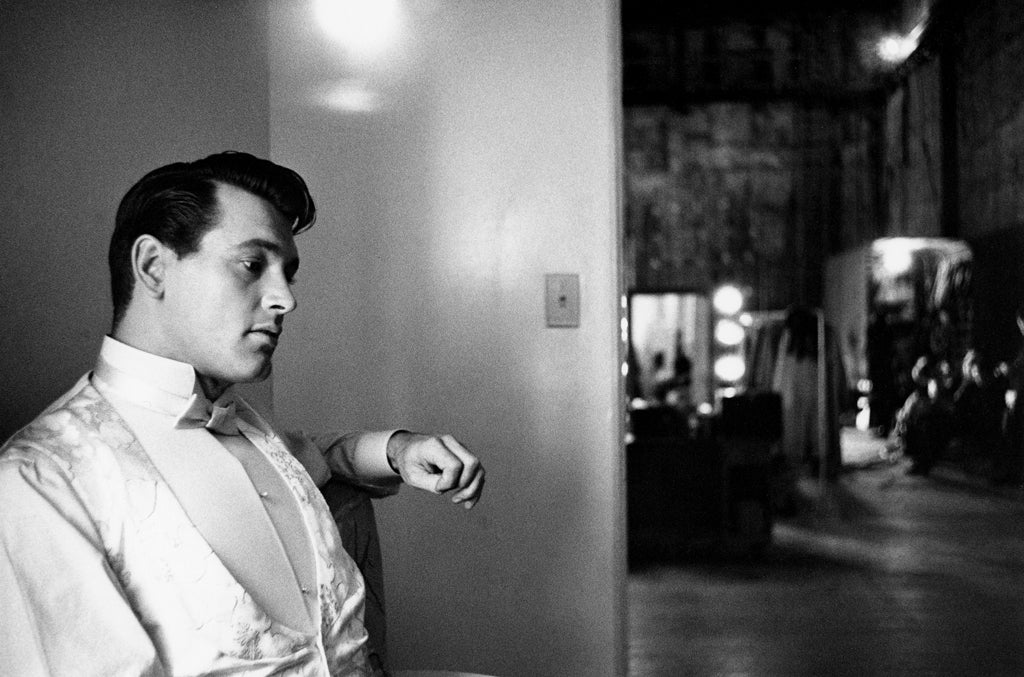The Flash: Does Ezra Miller's casting as a superhero mean Hollywood is finally opening up to casting openly LGBT actors?
Hopefully, the stigma attached to both LGBT actors and characters will lessen, but there still seems to be plenty of work to be done to make Hollywood, onscreen and off, a more equal place

Your support helps us to tell the story
From reproductive rights to climate change to Big Tech, The Independent is on the ground when the story is developing. Whether it's investigating the financials of Elon Musk's pro-Trump PAC or producing our latest documentary, 'The A Word', which shines a light on the American women fighting for reproductive rights, we know how important it is to parse out the facts from the messaging.
At such a critical moment in US history, we need reporters on the ground. Your donation allows us to keep sending journalists to speak to both sides of the story.
The Independent is trusted by Americans across the entire political spectrum. And unlike many other quality news outlets, we choose not to lock Americans out of our reporting and analysis with paywalls. We believe quality journalism should be available to everyone, paid for by those who can afford it.
Your support makes all the difference.This month US actor Ezra Miller made history when he became the first openly LGBT (lesbian, gay, bisexual, or transgender) actor to be cast as a superhero in a major studio film.
The star of We Need to Talk About Kevin and The Perks of Being a Wallflower, who identifies as “queer”, will play DC Comics’ The Flash in a Warner Bros-produced solo outing in 2018. The character is also set to appear in Warner’s Justice League films.
It’s a welcome development and represents a big step for Hollywood. Superheroes are the embodiment of traditional American masculinity, while LGBT actors still battle the idea that a non-straight actor is unable to play a straight character – which in Hollywood still pervades.
One might recall author and screenwriter Bret Easton Ellis’s Twitter tirade when the movie version of Fifty Shades of Grey was being cast. Never one to shy away from expressing an opinion, Ellis stated that openly gay actor Matt Bomer was not right for the role of Christian Grey because of his sexuality. He said: “Fifty Shades of Grey demands a man who is genuinely into women”.
Benedict Cumberbatch recently told Out magazine, while promoting The Imitation Game, that he knows actors who are afraid to make their sexuality public, for fear that it will impact their careers. Cumberbatch, who starred alongside the openly gay Zachary Quinto in Star Trek: Into Darkness, said: “I think if you’re going to sell yourself as a leading man in Hollywood, to say ‘I’m gay’ sadly is still a huge obstacle,” adding “we all know actors who are [gay] who don’t want to talk about it or bring it up, or who deny it.”

Meanwhile a recent study surveying 5,700 SAG-AFTRA (Screen Actors Guild-American Federation of Television and Radio Artists) members, and conducted by the Williams Institute – a UCLA think-tank that focuses on LGBT issues – suggested discrimination in Hollywood is still a prevalent issue. Among the findings of the study was: “53 per cent of LGBT respondents believed that directors and producers are biased against LGBT performers in hiring, and 34 per cent of non-LGBT members reported this same perceived bias”.
While there are many openly gay actors and actresses in Hollywood, it seems a sure bet that quite a few more are living in the closet. The situation is improving: the days when gay leading man Rock Hudson, a big star in the 1950s and 1960s, had to carefully cultivate an image of heterosexuality, to the point that he entered into a “lavender marriage” with Phyllis Gates, also secretly gay, are long gone. However, while Miller’s casting represents some progress, there is plenty of progress still to be made.
The problem is, when investing as much as $200m in a movie, a studio aims to appeal to as many people as possible: men and women, young and old, in the US and abroad. Anything that might put that at risk is frowned upon and, because of that, actors are put under pressure to not come out. Gay British actor Rupert Everett, for example, has warned young male actors who are ambitious not to come out if they want to play leading roles.
The studios’ desire to be ultra-mainstream also seems to negatively impact the number of openly LGBT characters in Hollywood movies. When Steven Soderbergh’s Liberace biopic Behind the Candelabra (2013) failed to get a theatrical release in the US, and was released as a TV movie instead, he claimed it had been turned down by every studio because it was “too gay”. The film had a small ($5m) budget and a couple of big stars (Matt Damon and Michael Douglas), but despite this Hollywood was apparently not interested. Soderbergh told Hollywood news and gossip site The Wrap: “This was after Brokeback Mountain, by the way. Which is not as funny as this movie. I was stunned. It made no sense to any of us.”

Watch Apple TV+ free for 7 days
New subscribers only. £8.99/mo. after free trial. Plan auto-renews until cancelled

Watch Apple TV+ free for 7 days
New subscribers only. £8.99/mo. after free trial. Plan auto-renews until cancelled

Over the summer, a study by GLAAD – a US non-governmental media-monitoring organisation founded by LGBT people in the media – found the representation of LGBT characters was extremely rare in films released by major studios. Last year, of 102 films released by the six major studios, only 17 had characters who identified as lesbian, gay, bisexual or transsexual. Another disturbing aspect of the study was, in GLAAD’s words, many of those characters were “outright defamatory representations”. These included using gay characters as everything from punchlines (Grown Ups 2, We’re the Millers) to punch bags (The Wolf of Wall Street, Pain and Gain).
The situation was reflected on by gay American film director Craig Johnson, whose latest film, The Skeleton Twins, starring Bill Hader as a failing gay actor, is out in the UK on November 7. On gay news website The Advocate, Johnson described how the appearance of a gay character in children’s animation ParaNorman (2013) – the first time an openly gay character had appeared in an animated film – was “the most progressive LGBT movie moment in ages”. Many parents were reportedly upset by the inclusion of the character, leading Johnson to add he hopes the future of LGBT cinema will simply be “where gay characters and straight characters can coexist, in a freakin’ animated family film, and no one really bats an eyelash.”
He also bemoaned the lack of gay characters in superhero films. Although Ezra Miller’s casting as The Flash means he is the first superhero to be played by an openly gay actor, there has only been one LGBT character in the recent spate of superhero outings – a cameo appearance from msnbc’s real-life anchorman Thomas Roberts in Iron Man 3. Meanwhile, the comic books from which these films are adapted champion diversity.
It is particularly frustrating when one would hope the likes of Marvel, or Martin Scorsese, who directed The Wolf of Wall Street, both of whom hold plenty of weight in Hollywood, could use their influence to encourage change. Hopefully, the stigma attached to both LGBT actors and characters will lessen, but there still seems to be plenty of work to be done to make Hollywood, onscreen and off, a more equal place.
Join our commenting forum
Join thought-provoking conversations, follow other Independent readers and see their replies
Comments